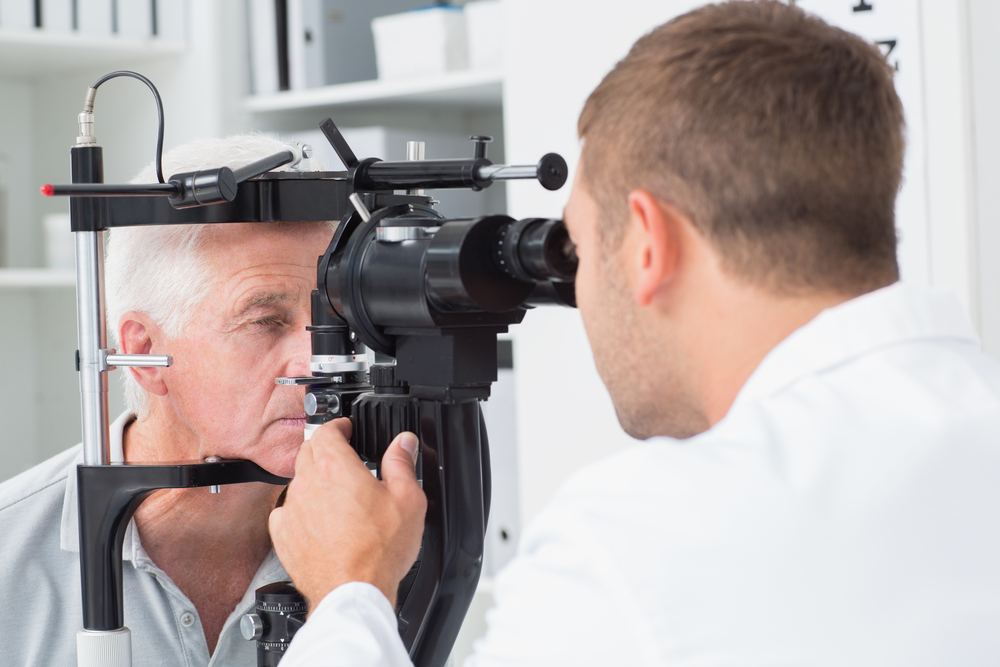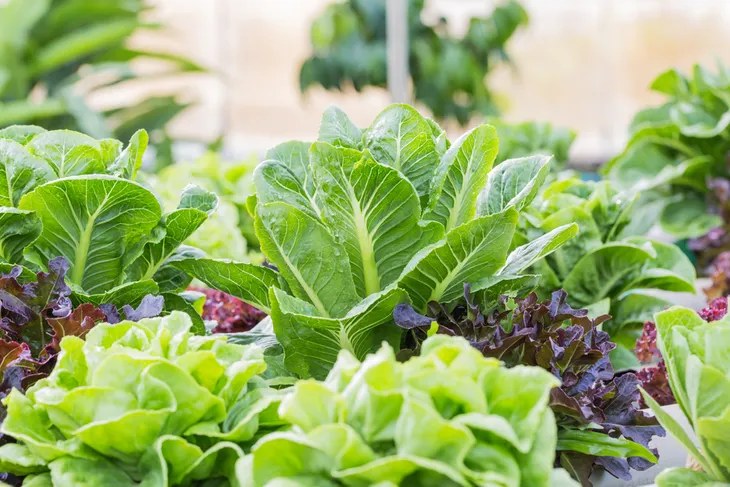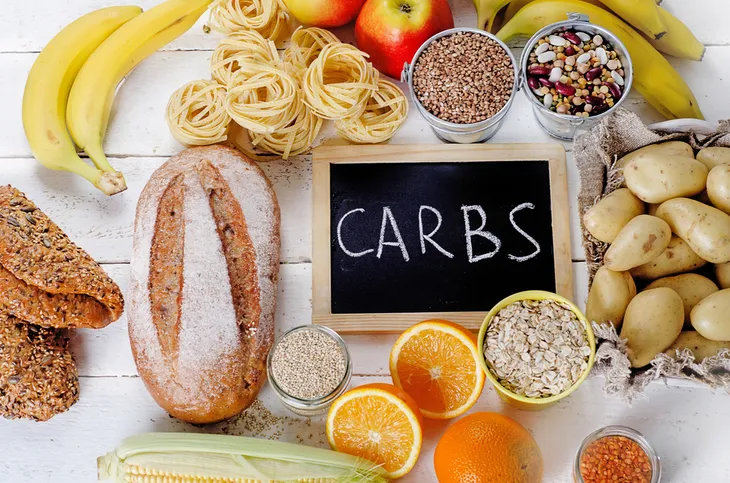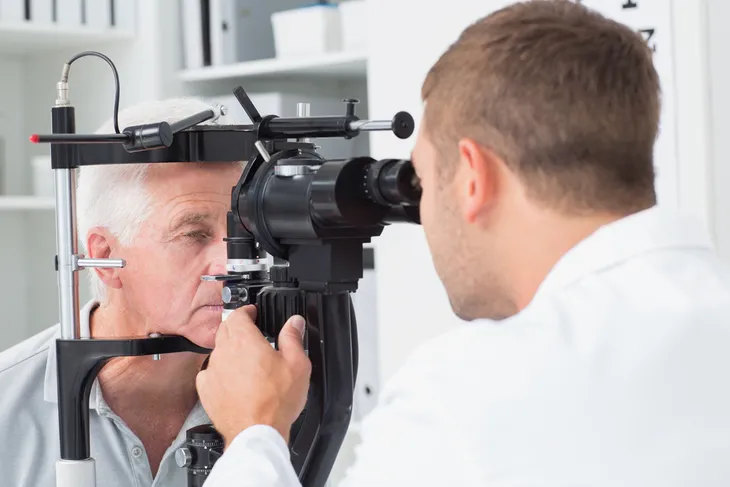Macular degeneration, also known as AMD, is the leading cause of irreversible vision loss in older adults. It causes a slow but steady loss of vision, making it difficult to perform everyday tasks, or even identify the faces of friends and family.
In essence, macular degeneration can be a debilitating condition that erodes one’s confidence and independence. But it doesn’t have to be that way. There are many steps one can take to prevent macular degeneration and slow the development of AMD. And one of the most important ways to keep AMD at bay involves making critical changes to one’s diet…
1. Consume Lots of Healthy Greens
The darker the green, the better. For decades researchers have known that people who eat more vegetables full of carotenoids have a much, much lower risk of developing AMD than people who avoid these foods.
In fact, if you go all the way back to 1994–the year Forrest Gump and the first Sony PlayStation were released–researcher published by the Journal of the American Medical Association (JAMA) concluded that the people who eat the most vegetables dense in carotenoids had a 43-percent lower risk of getting macular degeneration than people who left those leafy greens on their plate. The good news is that leafy, green vegetables, like spinach, kale, and collard greens, are absolutely packed with these carotenoids.
2. Eat Lots of Fish
Several studies have shown that eating fish on a regular basis can prevent macular degeneration. In fact, a study released by the Massachusetts Eye and Ear Infirmary revealed that older men who ate lots and lots of fish (at least two servings each week) cut their chances of getting AMD by about half.
A similar study carried out by researchers at the University of Sydney showed similar results. In fact, in that study involving just under 3,000 people, folks who ate fish just once a week saw their chances of developing AMD drop by an incredible 40-percent.
3. Get Moving
Just as it’s been shown that eating lots of green, leafy vegetables can reduce one’s chances of developing macular degeneration, a number of studies have revealed that regular exercise can keep AMD at bay.
Take, for example, a study of 4,000 adults carried out by British researchers. The researchers followed participants–whose ages ranged from 43 to 86–over a 15-year period. After taking weight, cholesterol levels and age into consideration, the researchers found that people who exercised regularly cut their chances of developing macular degeneration by a whopping 70-percent.
4. Eat Lots of Fruit
They may not prevent macular degeneration as much as green, leafy vegetables, but eating fruits can also keep your eyes healthy over the long term. The best example of this may be a 2004 study by Harvard Medical School researchers that revealed that people who consumed at least three servings of fruit each day saw their chances of developing advanced macular degeneration decline dramatically.
The key may be lutein, a carotenoid protein that’s found in both vegetables and fruit. If you can’t stand fruit or veggies, it may be a good idea to pick up a vitamin rich in lutein.
5. Go Nuts for Nuts
Several studies have shown that a diet rich in nuts–from pine nuts to cashews to peanuts–can help one prevent the development of macular degeneration.
Take, for example, the 2003 study by epidemiologists the National Cancer Institute in Bethesda, Maryland, which showed that people who ate nuts at least once per week cut their chances of getting advanced macular degeneration by 40-percent. In the grand scheme of things nuts are a great way to snack. After all, studies have shown that people who eat lots of baked goods or potato chips can actually increase their chances of developing AMD.
6. Cut Carbs
While increasing your intake of fruits, vegetables, and nuts, you should consider cutting the refined carbohydrates – like white bread, pretzels and sugar-laced baked goods – out of your diet. The good news is that you don’t have to avoid carbs altogether–just try replacing the refined ones with low glycemic index foods, including brown rice, whole wheat pasta, and multi-grain breads.
In any case, you’ll want to get rid of the processed carbs. According to a study released by the American Journal of Clinical Nutrition, these types of carbohydrates can significantly increase your risk of developing macular degeneration.
7. Keep Tabs on Blood Pressure and Cholesterol Levels
Although further research is needed in this area, preliminary studies, including the Framingham Heart and Eye Studies and the Beaver Dam Eye Study, have shown that maintaining healthy cholesterol and blood pressure levels can limit one’s chances of developing macular degeneration. In fact, some research has shown that failing to bring down very high blood pressure levels can lead to advanced–evening blinding–macular degeneration.
As stated, more research needs to be done in this area. But given the importance of maintaining healthy cholesterol and blood pressure levels for other parts of the body, including the heart, it’s always a good idea to keep an eye on these areas.
8. Wear High-Quality Sunglasses
Keeping your eyes healthy means wearing sunglasses on bright, sunny days–and not just any pair of sunglasses. It’s absolutely crucial that you buy and regularly wear sunglasses that have ultraviolet (UV) and blue light protection. The problem is that, over time, exposing your eyes to UV and high energy visible (or “blue”) light can result in the onset of macular degeneration
Think of your eyes the same way you think about your skin, if they’re exposed to direct sunlight for too long, you’ll open yourself up to some very serious health issues. And just as you need to use sunblock to prevent skin cancer (or melanoma), it’s crucial you cover up your eyes.
9. Get Your Eyes Checked Regularly
You wouldn’t go years without going for visiting your doctor, so you shouldn’t go years without seeing your optometrist, either. It’s critical that you have regular eye exams, which can help detect the signs of macular degeneration before the condition reaches an advanced state.
As a guideline, the American Academy of Ophthalmology recommends everyone get a dilated eye exam once every two to three years–at a minimum. This is especially crucial if you’re between the ages of 45 and 60, when macular degeneration can emerge. And for people aged 60 and over, the academy recommends getting an eye exam every single year.
10. Stop Smoking
Smoking makes you vulnerable to many, many different types of health problems and macular degeneration is just one of them. According to a recent study by health researchers at the University of Manchester, people who smoke are actually four times more likely to have macular degeneration than people who don’t smoke.
In fact, according to the Macular Society, smoking is the number one “modifiable” risk factor for macular degeneration. In other words, it’s the one habit people can eliminate and expect their chances of developing AMD to go down significantly.













